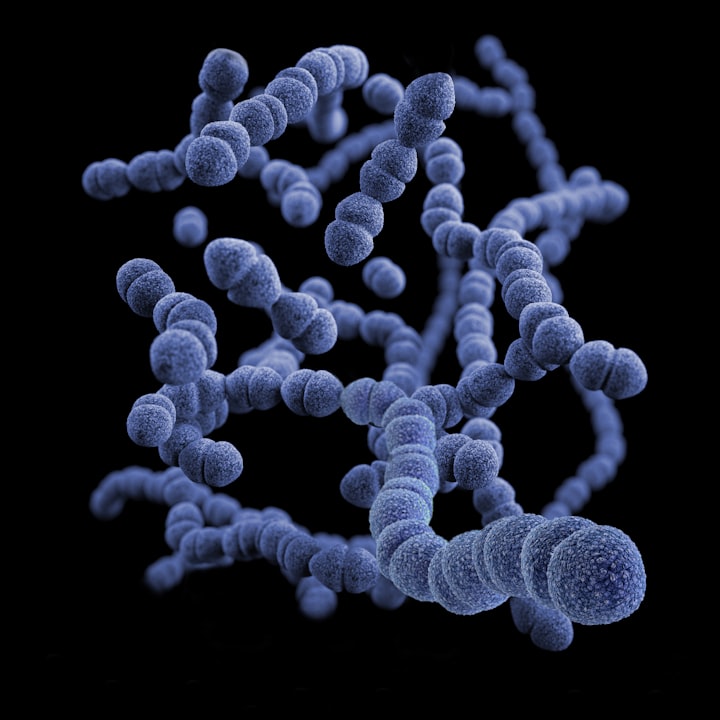Introduction:
Fungal infections are on the rise and it’s not just your grandma getting sick. Some of the world’s most popular tourist destinations are riddled with fungus. And for good reason! Fungal infections offer a whole new perspective on ancient sites, beautiful landscapes, and incredible food experiences. So how do you know if you’re dealing with a fungal infection? Here are some tips:
Fungal Infections Threaten the Economy.
Fungal infections are diseases caused by fungi. Fungal infections can cause a wide variety of symptoms, from mild to life-threatening, and can damage plants and tissues. The most common fungi that cause these problems are Haemophilus influenzae and Mycoplasma pneumonia.
What are the Effects of Fungal Infections on the Economy?
The effects of fungi on the economy vary depending on the severity of the infection and its impact on plant health. In cases of mild infections, there may be no significant impact on the economy; however, in more serious infections, delayed or missed production can lead to decreased sales or even bankruptcy for businesses that depend on those products. In addition, Fungal infections can also contaminate water supplies with harmful fungus spores which can hurt aquatic ecosystems.
How Can Fungal Infections Affect the Economy?
Fungal infection can have several negative consequences for both individual businesses and entire economies. For example, production delays can lead to decreased sales or even bankruptcy for businesses that depend on products produced by fungus-infected plants. In addition, fungal spores may contaminate water supplies with harmful fungus spores which can hurt aquatic ecosystems. This can lead to a decline in the quality of water in certain areas, and even reduce the number of fish available for consumption.
How to Stay Safe in the Fungal World.
Fungal infections are a common issue in the world of fungi. They have recently become an annoyance for travelers everywhere. To stay safe, it’s important to be well-informed about the different types of fungi and how to clean them. You can also avoid getting infected by using the right tools and avoiding touching fungal surfaces. Finally, it’s important to keep your home free from fungal infections so you can enjoy your trip to the fungus-laden world without any fear of being sickened or ruining your vacation.
Get vaccinated against Fungal Infections.
Traveling to unfamiliar places with a diagnosis of a fungus can be dangerous, but it’s also important to get vaccinated against the disease to protect yourself and those around you. If you don’t have access to a doctor or are not sure if you are healthy enough to catch the disease, get vaccinated against it before traveling. The Centers for Disease Control and Prevention (CDC) has tips on how to do this online or by calling 1-800-222-1222.
Use the Right Tools to Clean Fungal Areas.
One of the best ways to clean up areas that have been contaminated with fungi is with a nonabrasive cleaner like Dawn or Clorox wipes. These cleaners work great at taking off polish, dirt, and other environmental contaminants from surfaces in quick succession – making them ideal for cleaning up areas where live fungi may be present. Additionally, baking soda and water can be used as effective cleaning agents; just make sure not TOO much bleach is used! Be careful not to use harsh chemicals on delicate skin items like mucous membranes – this can cause serious irritation or even infection.
Avoid Fungal Infections at Home.
One of the best ways to avoid getting infected while traveling is to keep your home free from fungal infections. This means not using shared cleaning supplies, washing your hands often, and avoiding close contact with people who are sickened by fungi. Additionally, be sure to use the correct tools for the task at hand and follow the guidelines below for cleaning surfaces that may be contaminated with fungus.
Tips for Safe Fungal Travel.
When traveling to the Fungal World, be sure to take common-sense precautions. For example, avoid using hand sanitizers and other chemicals on your skin, and use proper hygiene practices when cleaning areas where fungi may be present.
Get vaccinated against Fungal Diseases.
Vaccination against fungi is important for both personal and travel safety. Many countries offer programs that offer free or discounted vaccination against fungal diseases, making it a cost-effective way to protect yourself and your loved ones.
Use the right tools to clean Fungal Areas.
One of the most important steps in maintaining a healthy environment while traveling to the Fungal World is keeping the surfaces of buildings and belongings clean and free of bacteria and fungus. In addition, make sure you are equipped with the right tools to clean these areas effectively - including a plunger, brush, or vacuum cleaner - as well as advice on how best to eliminate any potential contaminants before departure.
Avoid Fungal Infections at Home.
One of the easiest ways to avoid getting infected while traveling is by taking measures at home to prevent fungal growth. Make sure you keep an eye out for signs of fungal infection - such as excessive sweating or changes in color - and take appropriate action if these symptoms occur. Additionally, practice good hygiene habits when living away from home (i.e., washing your hands often), and keep any sick family members isolated until they are better served by medical professionals.
Conclusion
Fungal Infections are a threat to the economy. By staying well-vised when traveling to the Fungal World, getting vaccinated against Fungal Infections, and avoiding Fungal Infections at home, you can stay safe and healthy while visiting this dangerous world. Use common sense when traveling to the Fungal World and keep your belongings safe from fungus. Stay informed about new Fungal diseases and how to prevent them by using the right tools to clean areas contaminated with fungus. Finally, avoid living in areas that are frequented by fungi or have unhealthy conditions for fungal growth.






Comments
There are no comments for this story
Be the first to respond and start the conversation.